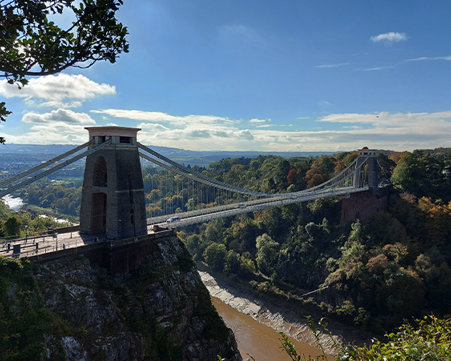
With just a few days until the General Election and with many voters still undecided, we’ve taken a look at the Conservative Party Manifesto to understand what they feel are the core areas they would prioritise in terms of infrastructure activity.
Cutting the Cost of Net Zero
Committed to achieving net zero by 2050, the Conservatives are also keen to cut any associated costs for consumers and have promised that there will be no new green levies or charges.
Their manifesto commits to speeding up the rollout of renewable energy as well as trebling offshore wind capacity. They have also revealed plans to build the first two carbon capture and storage clusters. One will be located across North Wales and the North West of England and the other, across Teesside and the Humber region.
The Green Industries Growth Accelerator aims to speed up connections and increase grid capacity to boost energy security and deliver long term savings for families and businesses.
In their manifesto, the Conservatives have committed £1.1 billion to this project, which will help advance manufacturing capacity in key net zero sectors including offshore wine, networks, carbon capture, usage and storage, hydrogen and nuclear.
Local Infrastructure Investment
In a bid to strengthen local communities, the Conservative Party is committed to improving local infrastructure and has pledged £36 billion to be spent on local rail, roads and buses to help drive regional growth. This includes the £8.3 billion investment reallocated following the cancellation of phase two of HS2 that will be used to tackle potholes and resurface roads.
There are also significant commitments to improving rail networks including the Northern Powerhouse Rail. Within the manifesto are plans to deliver this as well as funding electrification to Hull and the construction of a new station in Bradford. There is also a further £1.75 billion commitment to fully fund the Midlands Rail Hub.
Speeding Up Delivery
Perhaps most importantly, the Conservative manifesto has committed to shortening the average time it takes to sign off major infrastructure projects from four years to one.
Measures also include a commitment to offsetting the environmental impacts associated with new infrastructure and housing developments, making sure these requirements are proportionate whilst still meeting the required environmental outcomes.
There is also a plan to reduce infrastructure costs by speeding up changes to projects that already have consent, as well as ensuring National Policy Statements are regularly updated.
The manifesto also commits to putting an end to “frivolous legal challenges” that can create major delays to key infrastructure projects, as they plan to limit the time allowed for judicial reviews.
Share this article

As 2024 comes to a close, we at Hi West would like to take a moment to express our heartfelt gratitude to everyone who has been part of our journey this year.

Last weekend saw Darragh, the fourth named storm of the 2024-25 season, unleash high winds and heavy rainfall across the British Isles, once again straining the UK’s flood defences and transport infrastructure to their limits.

According to figures released recently, the nuclear sector in Bristol has reached a new milestone, now supporting 3,500 jobs as the city strengthens its role as a center for engineering, manufacturing, and research.